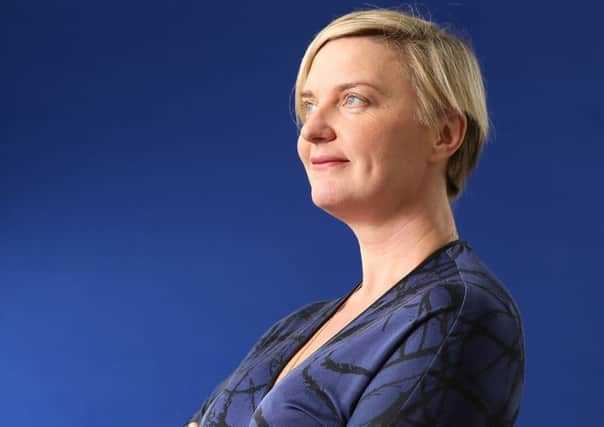Book review: The New Noise by Charlotte Higgins


This book,” Charlotte Higgins writes, “comes out of an unusual journalistic assignment. Alan Rusbridger, the editor of the Guardian, asked me to suspend my normal work as chief arts writer, and spend ‘several months’ researching the BBC. The notion was to try to deepen the debate about the broadcaster, which had often been shrill and bad tempered. Alan asked me to try to get under the skin of the institution.”
So this is what she set out to do, and I would say she has succeeded. This New Noise is not a history of the BBC – that work has been done at great length and in magisterial style by Asa Briggs – but it may be called a historical survey. Higgins spends almost a third of the book writing about the early years of the BBC – the time before television; and she is right to do so because, as she says, the BBC still bears the mark of its first Director-General, and true creator, John Reith, a strange, volcanic figure who did not even know what broadcasting was when he was appointed to head the new institution. Reith, son of a Glasgow Presbyterian manse, was high-minded and self-righteous – just as the BBC is today, though Higgins remarks that it is also surprisingly vulnerable; and perhaps Reith was that too. He declared that the BBC’s duty was to “inform, educate and entertain,” though, curiously, he was at first sceptical of its role as a provider of news.
Advertisement
Hide AdHe established two things. The BBC was a public service, but, though financed by the licence fee, was independent of Government and committed to impartiality. He made this clear during the General Strike of 1926, when he refused to allow Winston Churchill to commandeer the BBC as an agent of government propaganda. The arms-length relationship to the government of the day makes the BBC quite different from most state broadcasters, and almost all Prime Ministers have at times been angered by the BBC’s insistence on its duty to be independent.
For some 40 years the BBC enjoyed a monopoly, scarcely diluted by foreign-based radio stations (Radio Normandie, Radio Luxembourg.) The TV monopoly came to an end with the creation of ITV – independent commercial television, financed by advertising. Yet there were only three television channels till Channel 4 was set up in the 1980s, and the propriety of the licence fee – a sort of poll tax on anyone owning or renting a TV set – was rarely seriously questioned. Things are very different now. Nevertheless, though the licence fee is a regressive tax, unrelated to ability to pay, Higgins believes that it is not widely resented. She may well be right. In any case regressive taxes are quite common. You pay the same tax on a litre of petrol or a bottle of whisky whatever your income.
There are more serious charges against the BBC. The first is its appetite for empire-building. It has used its privileged position to extend its reach into print journalism through its website and its proliferation of local radio stations has arguably offered unfair and damaging competition to local newspapers. The BBC, Higgins tells us, now employs 7,000 journalists. It has also become a top-heavy organisation with senior managers being rewarded with very high salaries, while its commissioning processes have become grotesquely bureaucratic.
More serious perhaps, especially here in Scotland, is the question of its role as a national broadcaster at a time when the future of the United Kingdom is so uncertain. Which nation is it speaking to? Higgins is rightly critical of the pusillanimity with which the BBC rejected the proposal for a Scottish Six – which would have had BBC Scotland opt out of the six o’clock TV news from London in favour of presenting its own programme at that time. She also acknowledges the SNP’s resentment of the BBC’s coverage of last year’s Referendum, even though there were plenty of Scots who thought BBC Scotland’s coverage over-indulgent of the SNP. The charge of bias either way is hard to sustain – though many won’t agree. The truth is that attempts at impartiality never satisfy the committed.
Higgins never allows us to forget the role of individuals in BBC history, and some of her finest passages are neat and perceptive character sketches. One of the best is of the first Head of Talks, Hilda Matheson, another child of the manse, a woman of high intelligence and a lover of Vita Sackville-West. She eventually fell out with Reith, but there is no suggestion that he knew of her sexual orientation. There is also a brilliant portrait of Grace Wyndham Goldie, who, ignoring a warning that “television will not last – it’s just a flash in the pan” and the view of Sir William Haley, the first post-war Director-General, who thought “communication by vision… in some way immoral”, was able “to forge the future of television in ways that are still being played out today.”
In the end Higgins comes “to think of the BBC as if it were a church: supported by high ideals, feeding our inner lives, sustained by the goodwill of the faithful and sometimes – like all large institutions – infuriating in its internal workings.” Nobody, as Michael Grade puts it, “would invent the BBC in a dynamic market” such as we have today. You can’t intellectually – in a modern sense with a modern mindset – justify it. But it is part of what makes this country different from anywhere else in the world. Different, I would say, and I think Higgins would agree, in this respect at least also better.